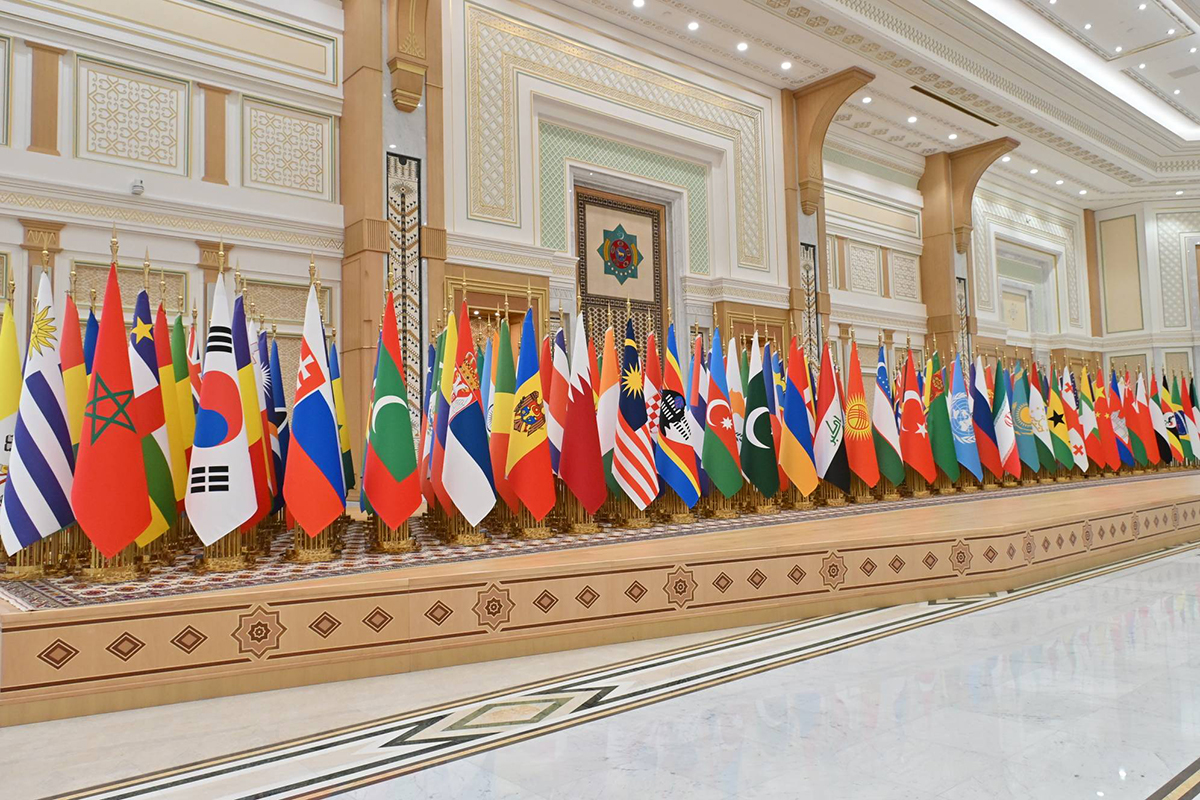30 years of independence of Turkmenistan is a date in the life of the people who, in the course of their centuries-old history, founded dozens of different states. As President Gurbanguly Berdimuhamedov emphasizes: “The Turkmen are essentially a state-forming nation. Starting from the early Middle Ages and for several centuries, they took an active and direct part in the creation and successful development of a number of state formations in Central and South Asia, in the Near and Middle East. "
These are the Great Seljuk Empire, formed during the conquest of the countries of the Near and Middle East by the Oghuz-Turkmens, the State of Garagoyunly and Akgoyunly Turkmen, the State of the Koneurgench Turkmen, the State of Karakhanids, numerous Turkmen districts, etc., The return of the Turkmen people to new conditions of sovereign development has absorbed both this invaluable experience, and the spiritual and moral foundations of the people, its age-old aspirations and hopes. They defined the vision of their historical perspective as a freedom-loving and proud people who have always considered the main value to be the ability to independently determine their own destiny and their place in the world.
The choice of neutrality as a political form of existence for the young Turkmen state provided favorable external and internal conditions for its development in the most difficult period after gaining independence in order to quickly move to sustainable political, economic and social growth. Three decades of independence have become a period of national unity and progressive progress in all spheres of the life of the state and society. And today, independent and neutral Turkmenistan is an active member of the world community, a state with a predictable and invariably peaceful policy, with a dynamically developing socially oriented economy.
Along with the historical experience of state building, the ideas of Turkmen thinkers who called in different eras for the unification of the Turkmen in a single sovereign state became a powerful spiritual foundation of independence. And, first of all, this is of course Makhtumkuli Fraghi - the main spokesman for the thoughts and aspirations of the people, who enjoyed the highest authority not only among the Turkmens, but throughout the entire Turkic world. His views on the importance of unity within the framework of the national state, his dreams of such a future for the Turkmen became the core of the mentality of the people, which determined his desire for freedom and independent development.
Makhtumkuli, who lived in difficult political conditions of the 18th century and traveled a lot in search of knowledge, clearly understood that only the unification of various tribes and the creation of a sovereign state could ensure a peaceful life and the future of the Turkmen people. The following lines of the poet sound like a manifesto and a guide to action:
Turkmens! If we could live together
We used to drain the Nile, we used to come to Gulzum.
Teke, yomud, goklen, yazyr and alili, -
All five! - we must become one family!
The ideas of unification of the Turkmen tribes scattered at that time, the creation of their own sovereign state, ardently sound in such famous poems by Makhtumkuli Fraghi as “The Future of Turkmenistan” (“Türkmeniň”), “Invincible” (“Türkmen binasy”) and others.
Ogulgozel Rejepova






